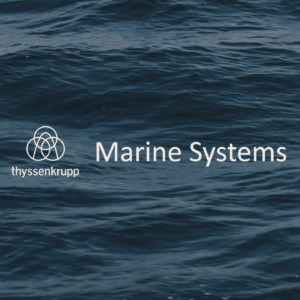
Baptiste Grüss
Experte für (EU-)Berichtspflicht
Ein gutes Verständnis ermöglicht konkretes Handeln
In the 2019 EU elections, climate and environmental issues were at the heart of debates, to the extent that the 2019 European elections were dubbed the “climate elections”. Ursula von der Leyen, the newly elected president of the European Commission, campaigned on ambitious promises regarding environmental preservation, driven by the “green wave” and the need to secure the European Parliament’s approval. During her mandate, the Commission has adopted a set of bold proposals, known as the EU Green Deal. Key milestones of the Green Deal include the target of achieving climate neutrality by 2050, the ban on selling new thermal cars by 2035, and the Corporate Sustainability Reporting Directive.
The new European Parliament’s composition will shape the priorities of the upcoming EU leadership, as the Parliament will elect a new Commission president and approve the team of Commissioners. The next five years will be pivotal in reaching the EU’s 2050 target, while the IPCC* emphasizes that limiting global warming to 1.5°C requires global GHG emissions to peak by 2025 at the latest [1]. The incoming EU Commission will be responsible for either advancing the Green Deal’s objectives or scaling back climate ambitions. However, despite the high stakes, the 2024 European elections campaigns across Member States bear little resemblance to those of 2019, with climate and environmental issues receiving minimal coverage and attention. Why is this the case?
The war in Ukraine, the situation in the Near-East, inflation, and recessionary economic trends, particularly in Germany, along with the resulting concerns about public indebtedness levels and the recent farmers’ protests across Europe earlier this year, have dominated campaign debates, relegating environmental issues to the periphery of the elections. Moreover, the EU elections campaigns are often rooted in national contexts, which don’t allow debates on the climate and environmental policy the EU should follow: in France, the government’s party and the far-right frame the election as a barometer for the next presidential election in 2027, while in Poland, these elections will be the first since the election of Donald Tusk’s government and were framed as a first test for the performance of the government.
In addition to being sidelined in the current campaign, climate and environmental issues seem particularly prone to political polarization: ambitious measures require trust in scientific institutions, international coordination, and a holistic approach to take into consideration social and economic pain points – otherwise, we can foresee climate policy becoming the scapegoat for other major crises like the rising cost of living or rising unemployment.
Regulatory compliance is just the first step towards a sustainable and economic future for your company. We translate the range of environmental regulations, integrating the specific industry targets and topics, as well as competitor and customer benchmarks. Check out our regulatory compliance page to discover how we can leverage the potential of your company
But EU citizens care for the climate and for the environment: over the past years, many EU citizens were exposed to rising temperatures, record droughts, wildfires and floods, making them increasingly aware of the consequences of climate change. In July 2023, the European Commission published the results of a survey on climate action, energy and the environment, aggregating data from all Member States [2]. 77% of respondents think climate change is a very serious problem and 67% of citizens think their national government is not doing enough to tackle it. This high awareness of the seriousness of climate change comes with an increasing feeling that the changes needed to mitigate climate change influence day-to-day life, fueling political polarization, but in the end, 73% of citizens agree that the cost of the damage caused by climate change will be much higher than the cost of investing in a green transition.
At eolos, we believe that climate change and environmental issues should be central to political discussions, as they are of great importance to EU citizens. It is essential that all parties engage in substantive debates on these matters, recognizing their complexity and the potential social and economic challenges that may arise from implementing necessary regulations. The EU has demonstrated its ability to shape climate action, as evidenced by the impact of the Green Deal on Member States’ policies. By giving these issues the attention they deserve, we can work towards a more sustainable future for all EU citizens.
*Intergovernmental Panel on Climate Change
Sources:

Experte für (EU-)Berichtspflicht
Ein gutes Verständnis ermöglicht konkretes Handeln

We embarked on a 6-month mission with thyssenkrupp Marine Systems. This journey began with a Double Materiality Assessment, a crucial step in identifying material ESG issues to be included in the inaugural thyssenkrupp Marine Systems sustainability report based on ESRS standards.

Over a 4-month sprint, we achieved AGEC Law compliance for Ariston through systematic regulatory analysis, collaboration with electrical system experts, and identification of knowledge gaps. We consolidated relevant information for compliant disclosure.

Over six months, we tackled our client’s locomotive reliability concerns by performing YTEOL analysis on three crucial systems. We offered customized recommendations that balanced economic advantages with essential technical and safety constraints.

Wir sind stolz zu verkünden, dass wir den Klimanotstand ernst nehmen und uns verpflichtet haben, bis 2050 Netto-Null-Emissionen zu erreichen.
#UnitedNations #RacetoZero
Begleiten Sie uns auf unserer Race to Zero
eolos | engineering the future® und sein Logo ist ein eingetragenes Warenzeichen der eolos GmbH. Alle Rechte vorbehalten
Design for Circularity und sein Logo ist ein eingetragenes Warenzeichen der eolos GmbH. Alle Rechte vorbehalten
eolos GmbH – Rosenthaler Str. 33, 10178 Berlin, Deutschland – Amtsgericht Berlin Charlottenburg – HRB 207 570B
Sie können unsere aktuellen Stellenangebote auf LinkedIn finden oder uns eine Initiativbewerbung über das Formular senden.
Mit der Angabe Ihres Namens und Ihrer E-Mail-Adresse erklären Sie sich damit einverstanden, von einem unserer Experten kontaktiert zu werden.